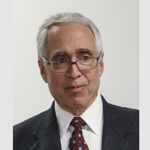Bring on the Graduates
![]()
overnment has been worrying so much about wooing recruits from the private sector that it has ignored the real rising stars of the public service talent war-young Americans.
The good news for government recruiters is that nearly two out of three young Americans give at least some consideration to taking public service jobs. Out of 1,002 college seniors in liberal arts and social work majors surveyed in April by the Center for Public Service, which I direct, 26 percent had very seriously considered public service jobs with government agencies, nonprofit organizations and contractors. Another 36 percent had given such jobs at least somewhat serious consideration.
The problem for federal, state and local recruiters is that most young Americans simply do not associate public service with government work. When they hear the words "public service" these days, most of them think about the nonprofit sector. Asked what the words "public service" meant to them, almost two-fifths of the students surveyed talked broadly about doing things for the public, helping the needy, or working for the betterment of humankind; another third talked about giving something back to the community and being a contributing member of society; and a sixth focused on the personal rewards of being a good citizen. Public service means helping others, not pushing paper.
Helping people is what the nonprofit sector is all about. When asked to think about public service jobs, students said the nonprofit sector had the best jobs for someone who wants a chance to help people, make a difference and gain the respect of family and friends. Government was seen as the most attractive place to work for those who want good benefits and the chance to serve the country, while contractors were seen as the best at providing higher salaries.
Students also said the nonprofit sector had the best public service organizations. Asked which of the three sectors performed better, students rated nonprofits as the best at spending money wisely, helping people and making fair decisions. Only 6 percent of students said government was the best at spending money wisely, 16 percent said it was the best at helping people, and 22 percent said it was the most fair in its decisions. Contractors were viewed as the worst at making fair decisions (10 percent) and helping people (4 percent), but they ranked higher than government on spending money wisely (29 percent).
Students know the nonprofit jobs come at a cost. Only 2 percent said nonprofits offered the best salaries compared with government and contractors, and just 5 percent said nonprofits were the best for benefits. Even more troubling for the nonprofit sector, only 22 percent of the students said nonprofits were the place to go to serve the country. Even among students who said they would prefer to work for a nonprofit agency instead of government or a contractor, government got the nod as a place for patriotic service.
Patriotism is not enough to get through the government hiring process, however. Seventy percent of the students said finding a job in government would be very or somewhat difficult, compared with just 38 percent for the nonprofit sector. Students described the government hiring process as confusing (63 percent) and slow (78 percent), and nearly a quarter refused to call it fair. They viewed the nonprofit hiring process as simple (69 percent) and fast (56 percent), and nine out of 10 called it fair. The contractor hiring process ranked between the other two sectors on simplicity and speed.
The survey offers important insight for government recruiters on how to close the deal with potential employees. It shows they should:
- Bring talented students into government early in their college careers, whether as volunteers, interns or employees. Students who spend some time in government are likely to favor government as a public service career later.
- Take advantage of patriotic fervor in selling government as an employer. Even agencies that are far from the front lines of the war on terrorism need to show how they are contributing to a stronger America.
- Show potential employees how they can help people through government work. When asked what matters most in deciding where to work, students are not saying "show us the money," but "show us the job."
- Address government's hideous hiring process, and the bureaucratic signal it sends. Potential recruits rightly worry about being buried under layers of ineffectual management and wasting day after day filling out needless paperwork.
- Remember that parents are students' No. 1 source of career advice. Unfortunately, most polls suggest that parents view government as the place to go for job security and benefits, not the chance to help people or make a difference.
Paul C. Light is director of the Brookings Institution's Center for Public Service and a professor at New York University's Wagner School of Public Service.
NEXT STORY: Presto Change-o at Defense







